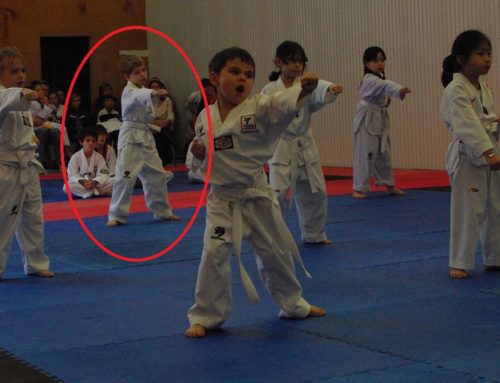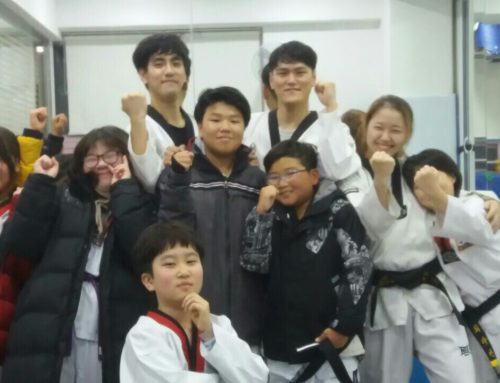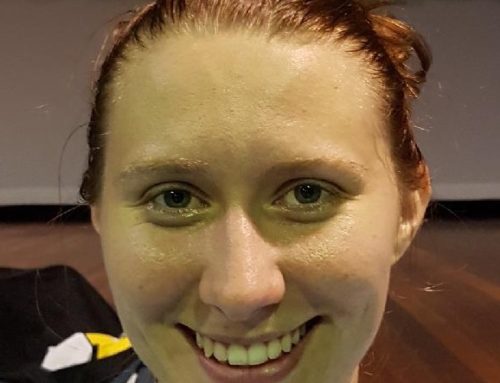
Learning and mastering a Martial Art has been a lifelong goal for me. Unfortunately in my early years there always seemed to be some impediment to finding and joining a club. Work, family and other commitments consumed my time in the first two decades out of School. By the time I was in my late 30’s my wife and I were firmly of the opinion that sport was important for moulding our children’s future social skills. My belief is that as they develop; childrens lives need positive influence from parents, teachers, and others so that when they become adults that are culturally and socially adept.
After trying the boys out with a number of different sports, I realised that team sports seemed to be more about the parents at times than about the children’s own achievements. After some research I was convinced that Taekwondo may play a role in their ongoing social development.
A month after watching the oldest (Lochlan) at Taekwondo training under the instruction of Darryl Gowlett, I decided to join in and was immediately hooked. At first I thought that Taekwondo was going to be easy to master as it didn’t appear to involve much more than some punching, kicking and jumping.
As I began to progress through the early belt levels, I discovered that Taekwondo was not just difficult, there was much more to it than simply kicking, punching and memorizing poomse. I learned that it was also about focus, self-discipline, self-control and self-motivation. I particularly enjoyed learning the poomse patterns and adding new ones to my ‘collection’ after each grading. The initial process of memorizing the moves is always a challenge and after mastering the moves it’s then time to learn each movement in detail in an attempt to eventually become proficient at the pattern. This, I found, was very self-satisfying as it is something I can practice by myself and continually fine tune the individual blocks, strikes and kicks.
I found myself practicing poomse at home on a weekly basis. By varying the speed and power of each movement I also realised that poomse can be good as a cardio workout and that it develops speed, power and coordination.
Upon reaching black belt level, I came to understand that this is not the final accomplishment of Taekwondo training. It is just a progression in the overall pursuit of mastering the techniques in the same way a beginner moves from white to yellow belt. The black belt has provided me with a level of personal integrity and honour and a desire to seek ongoing improvement.
Anybody who is of the belief that earning a black belt means they don’t have to work hard anymore is greatly mistaken and probably lacking in personal commitment. Thus far, being a black belt has given me more responsibility during class and I find myself continuing to make the effort to appear better than the lower belt ranks.
The mateship within Tans club is another appealing aspect to Taekwondo training. Though it is now a sizeable club, Tans continues to value individuals and families no matter what branch they are from. At gradings and training at other centres, members are respectful of visitors and easy to mix with. The friendships developed during training are enduring and meaningful. Unlike team sports there is healthy competitive aspect between everyone but also a willingness to help each other to master techniques.
The social side of Taekwondo training is important in that it creates an atmosphere that I want to be a part of and helps provide the motivation to turn up to training on a regular basis. The fact that Taekwondo is about individuals improving themselves helps to remove the barriers between people that are often seen in team sports where people are attempting to be recognised as a stand out from the crowd. In my experience this tends to result in people that are self-centred and not willing to give their time to help others improve their abilities.
When I enter the Dojang it is with the intent of being an example to other younger students and to their parents. I have found that these younger students now look to me for help with their techniques which still surprises me because at times I don’t think I am any better than I was 2 years ago. There is no doubt however that I have improved since reaching black belt.
The training has provided me with a self-awareness of why I am performing certain techniques and what they should look like when carried out correctly. I find it important to try and perfect the techniques and feel let down with myself if I appear to be slacking off in class and not putting in enough of an effort. I am now continually conscious of what other junior belts will think if I appear to be displaying poor form. I know feel compelled to display correct technique not only for my own personal satisfaction but also to try and represent my Instructors and show that I have listened to their critique and made a real attempt to correct any flaws.
In addition to personal satisfaction through focus and correct application of techniques, Taekwondo has continued to benefit me on a day to day basis. Flexibility is one of the biggest assets that have resulted from my dedication to training within and outside the Dojang. The increased flexibility has made it less likely that I will get injured in practice and easier to run and carry out other physical activities. I also believe there is less chance of getting hurt doing any daily physical activity at work and home.
My reflexes have improved greatly as well since commencing Taekwondo. It has made me faster to regain control of myself and react to accidents. I also have increased balance and overall physical conditioning. I feel that the training has given me additional patience and self-control in difficult situations due to the varying levels of physical exertion required during lessons.
The knowledge that I am also more likely to be able to defend myself and others if attacked is also comforting. The fact that I may never need to test myself in a real situation is not really important, so long as I know that my mind and body are likely to respond to a situation due to acquiring the learned responses through constant hard practice.
by Leigh Crowley
Tans Taekwondo Springwood







Leave A Comment